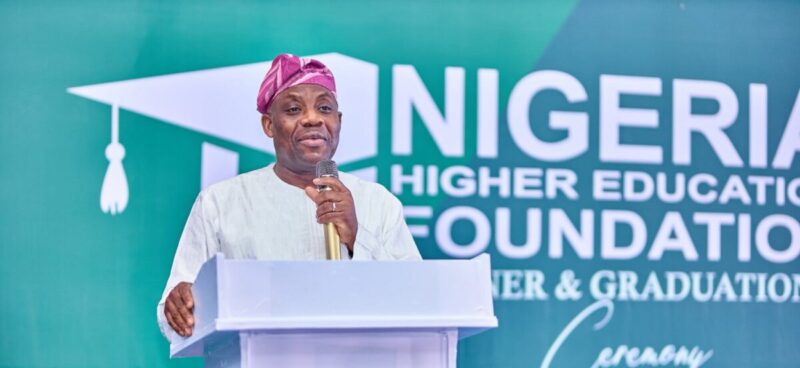The Federal Government has launched a new digital platform to manage the registration, certification, and professional development of teachers across Nigeria, describing it as a step towards fixing long-standing gaps in the education sector.
Unveiling the initiative in Abuja, the Minister of Education, Dr. Tunji Alausa, said the Teachers Registration Council of Nigeria (TRCN) developed the portal to centralise and streamline teacher management nationwide.
According to him, the platform is designed to handle licensing, renewals, examination scheduling, and professional development tracking. It will also operate as a national database for teacher performance and career growth.
“It will also enable examination scheduling, professional development tracking as well as serve as a national database for teachers performance and career progression,” Alausa stated.
The reforms, he explained, go beyond technology, including a new strategic framework that focuses on professionalisation, digitalisation, accountability, equity, and alignment with global standards.
One of the key policies will be the Teacher Ethics and Criminal Record Verification Framework, which will become mandatory for all educators. “This is not punitive; it is protective. It is about safeguarding our children and upholding the moral integrity of our classrooms,” he added.
Private school owners are also expected to confirm the TRCN registration and ethical clearance of their teachers using the secure verification system integrated into the portal.
TRCN Registrar, Dr. Ronke Soyombo, said digitising the council’s operations formed part of her 100-day action plan. She explained that the portal would allow teachers to complete registration, access results, and print certificates remotely without visiting TRCN offices.
“With this portal, teachers across Nigeria can conveniently register, access their results, and print their certificates from the comfort of their homes without visiting state offices,” she said.
She added that the Professional Qualifying Examination (PQE) had been restructured from 23 subjects into five core areas: foundational mathematics, literacy, digital literacy, safeguarding, and pedagogy.
She also revealed that an AI-powered lesson plan generator would be introduced in October to provide contextualised teaching materials.
Dr. Patrick Adeleye, CEO of TeckPlus Digital Solutions, the firm that built the system, disclosed that the project started 20 months ago to address poor teacher data management. “Before now, we did not have accurate figures on the number of teachers in Nigeria, how many were certified, or even qualified to be in the classroom. This affected the overall learning outcome,” he said.
International partners present at the launch welcomed the initiative. The British Council’s Director of Programmes, Chikodi Onyemerela, described it as a milestone in education reform, while Ian Attfield, Senior Education Adviser at the British High Commission, noted that better data management would help motivate teachers.
Mohammed Isa, senior special assistant to President Bola Tinubu on Special Needs and Equal Opportunities, urged that the portal for teachers’ registration and certification include accessibility features such as screen readers, sign language tools, and digital braille. He said this would align with the administration’s Renewed Hope Agenda and ensure inclusivity for all learners.
![]()











